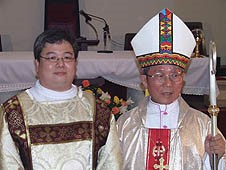A canon lawyer is arguing that case, in reference to Sr. Margaret Mary McBride.
America Magazine has the details. Among the key points:
5. The Code of Canon Law contains nothing specifically and precisely (a “must” in criminal matters) about an automatic excommunication inflicted on “cooperators” in abortion (which does not exclude that their act could have been wrong and that they may suffer other punishment). It follows that no cooperator is automatically excommunicated unless the cooperation itself amounts to procuring the abortion.
6. The church’s criminal law is based on an ancient and inviolable rule: whenever objective doubt exists, however small, as to whether or not a person has incurred an automatic excommunication, the person must not be held excommunicated. The rule is not canonical hair splitting; it is for the defense of the accused. This rule binds every bishop and each of his flock.
7. The conclusion is compelling: to say the least, it is highly doubtful that Sr. Margaret acted out of malice aforethought, or that she actively procured an abortion. Hence, she could not have been–and she was not–automatically excommunicated. The declaration of the excommunication by the local bishop, therefore, is null and void. In her case, canon 1324 § 3 is applicable, “the accused is not bound by the automatic, latae sententiae, penalty” and, of course, no one is bound to respect it.
Check out the whole thing.

